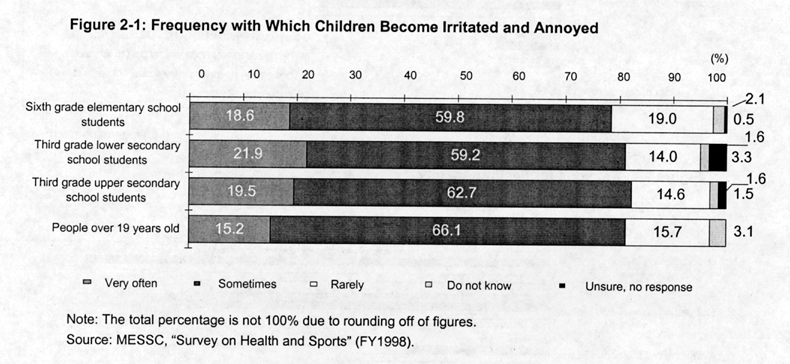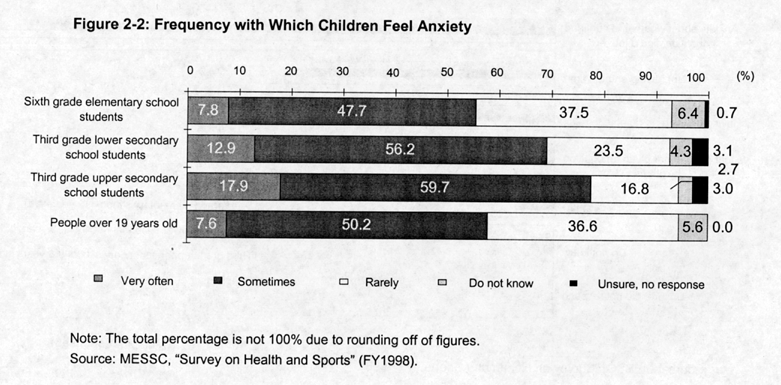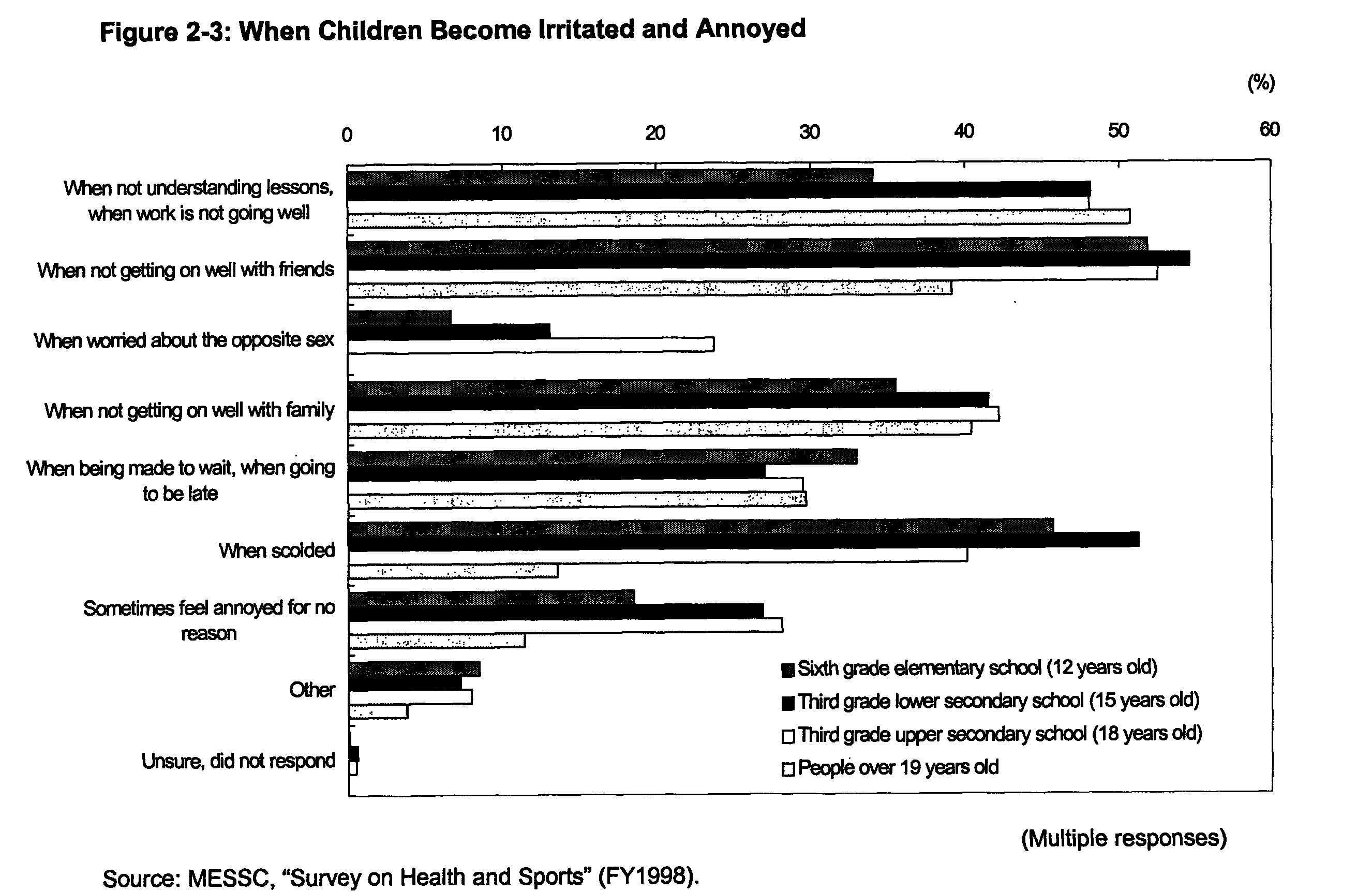| Home > Policy > White Paper, Notice, Announcement > White Paper > JAPANESE GOVERNMENT POLICIESIN EDUCATION, SCIENCE, SPORTSAND CULTURE1998 > MENTAL AND PHYSICAL HEALTH AND SPORTS CHAPTER2 SECTION2 1 | ||
According to the"Survey on Health andSports,"approximately20%of all sixth gradeelementary school,third grade lower secondaryschool and third grade upper secondary schoolstudents responded that they become irritated orannoyed"very often"( see Figure2-1 ).
Furthermore,the percentage of students whoresponded that they feel unease"very often"increased in students in higber grades( seeFigure2-2 ).
Many children responded that they becomeirritated and annoyed,or feel uneasy when they"do not get on well with friends,"or"do notunderstand lessons."Approximately30%ofstudents in both third grade lower secondaryschool and third grade upper secondary schoolrespectively responded that they"sometimesfeel annoyed for no reason,"when asked whythey become irritated and annoyed( see Figures2-3 , 2-4 ).




| Back to Top | MEXT HOME |